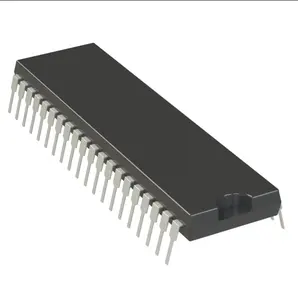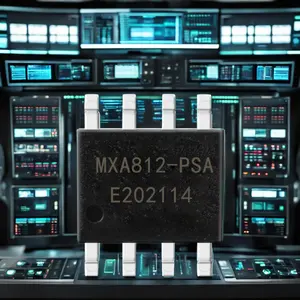
High Quality Electronic Components New Original PIC18F4520-I/P IC MCU 8BIT 32KB FLASH 40DIP PIC 18F Microcontroller


Interference Destroys Sensitive Circuits High-Speed Dual Channel Digital Isolator With 2500V Voltage Isolation ICs Product





















Integrated circuits (ICs) are the building blocks of modern electronics, and the 20*4 IC is a prime example of this essential component. These ICs find their place in a myriad of applications, serving as a crucial element in various electronic devices. The term "20*4 IC" generally refers to a category of integrated circuits that share a common footprint or specification, suitable for diverse electronic functions.
The 20*4 IC category encompasses a range of circuits, each designed to perform specific functions. From power management to signal processing, these ICs are integral in consumer electronics, automotive systems, and industrial machinery. Their applications extend to complex data processing units and simple timing devices, highlighting their adaptability in the tech industry.
A 20*4 IC is characterized by its compact size and efficient performance. These ICs are typically crafted from silicon, a material known for its excellent semiconductor properties. The internal structure of these ICs is a marvel of micro-engineering, with intricate patterns that define their specific functions. Manufacturers may also use other semiconductor materials to tailor the ICs to particular performance requirements.
The use of 20*4 ICs in electronic design offers several advantages. Their small size allows for more compact device designs, while their efficiency contributes to lower power consumption. The versatility of these ICs means they can be incorporated into a wide range of products, from simple gadgets to complex industrial systems, making them a staple in electronic manufacturing.
When selecting a 20*4 IC, it is crucial to consider the specific needs of the project. Factors such as operating voltage, current capacity, and signal frequency are essential to ensure compatibility and optimal performance. Additionally, the thermal management properties of the IC should be evaluated to maintain reliability and longevity in various operating conditions.
Lastly, the environmental impact and durability of 20*4 ICs are important considerations. Manufacturers are increasingly focusing on creating ICs that not only meet technical specifications but also adhere to environmental standards. This includes the use of materials that are less harmful to the environment and designing ICs that have a longer operational life, reducing electronic waste.